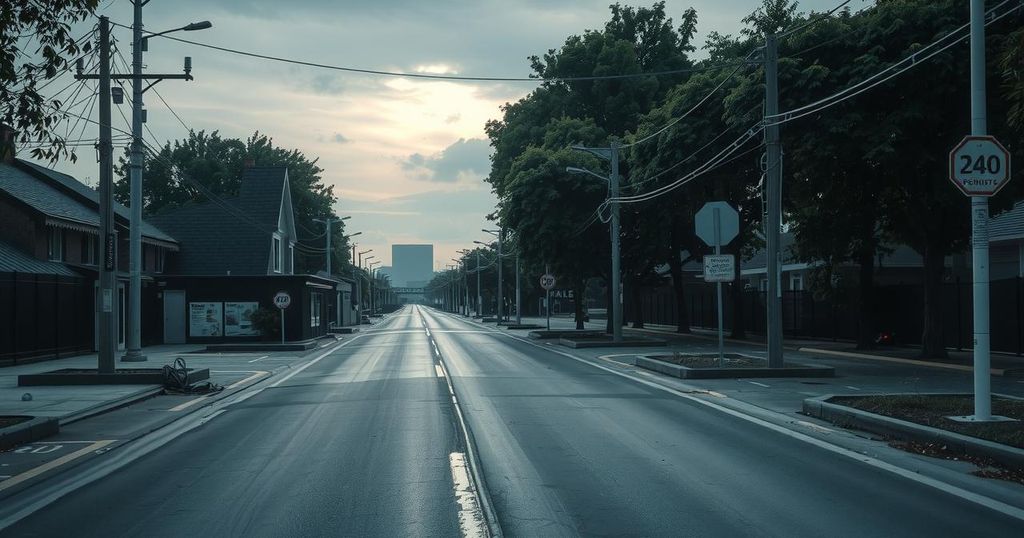World news
AFRICA, BELGIUM, CIVIL WAR, CONGO (KINSHASA), CORN, CORNEILLE NANGAA, DEMOCRACY, DEMOCRATIC REPUBLIC OF CONGO, DRC, EUROPE, FELIX TSHISEKEDI, GOMA, HUMANITARIAN, KINSHASA, KIVU, M23, MILITARY, NBC NEWS, NORTH AMERICA, RWANDA, SOUTH KIVU, TEXAS, TSHISEKEDI, U. S, UNITED NATIONS, UNITED STATES, WAR
Marisol Gonzalez
0 Comments
Escalating Conflict in the Democratic Republic of Congo: The M23 Insurgency
The DRC is engulfed in a deadly insurgency led by M23, which has recently captured Goma and threatens to advance towards Kinshasa. This escalation can lead to a humanitarian crisis, with hundreds of thousands displaced and international actors calling for attention. The conflict is deeply rooted in ethnic tensions linked to the region’s vast mineral wealth, which attracts global investments amidst instability.
The Democratic Republic of Congo (DRC) is currently engulfed in a violent conflict as the rebel group M23 seeks to expand its territory by advancing from Goma. This escalation marks a significant moment in the ongoing struggle that has lasted over a decade, with the United Nations warning that the situation may lead to further regional instability. With Goma captured, M23 leader Corneille Nangaa aims to push towards the capital, Kinshasa, provoking a strong response from the Congolese government, which is calling for a national mobilization.
For years, the DRC has suffered from conflict, particularly since gaining independence in 1960. The situation has deteriorated further in recent years, with clashes between national troops and M23 insurgents resulting in over 400,000 people displaced last month alone. The ongoing violence has also led to casualties among United Nations peacekeepers stationed in the area, highlighting the need for international attention.
The current offensive has been labeled a “declaration of war” against Rwanda by President Félix Tshisekedi’s administration, with reports of dramatic conditions in Goma, including power and water shortages, and corpses in the streets. In response to the escalating crisis, international figures, including President Donald Trump and the French Foreign Minister, are being urged to recognize the severity of the situation in the DRC.
The M23 group is largely composed of ethnic Tutsi, who allege their fight is to protect their community in a predominantly Hutu nation. Established amid increasing tensions with Rwanda, the M23 has been intertwined with a complex history involving ethnic conflict and shifting allegiances following past genocides. Although peace agreements have been attempted, the group continues to assert its relevance amidst the ongoing instability.
China’s involvement in the DRC’s mineral-rich landscape complicates the conflict. Though the region is deemed economically poor, it is rich in cobalt and other minerals essential for technology and electric vehicle batteries. Most cobalt production in the DRC is controlled by Chinese firms, making this conflict not only a regional concern but also a global one given the essential resources at stake.
Rwanda’s role in the conflict is under scrutiny as historical ties between the M23 and the Rwandan government resurface. In earlier conflicts, Rwanda faced backlash from the international community for its involvement but currently continues to receive foreign aid while supporting the M23. Criticism of Rwanda’s actions amidst the conflict raises questions about the consistency of global responses and the implications for Western investments in the region.
The Democratic Republic of Congo has a long history of conflict dating back to its independence from Belgium in 1960. The DRC is rich in minerals, including cobalt, which are crucial for modern technology, attracting various international interests amidst its ongoing struggles. Recent escalations from the M23 rebel group represent a revival of past tensions, particularly concerning ethnic divisions between Hutu and Tutsi populations, a legacy of the Rwandan genocide in 1994. The impact of this situation extends globally, given the strategic importance of the region’s mineral resources.
The DRC is facing a severe humanitarian crisis as the M23 insurgency escalates, drawing in historical tensions and international interests. The conflict has prompted significant displacement and loss of life, with both local and foreign entities responding to the evolving situation. As global powers navigate their involvement amidst the chaos, the regional implications of this conflict remain profound, particularly in relation to the control of essential mineral resources vital for modern technology.
Original Source: www.nbcnews.com




Post Comment